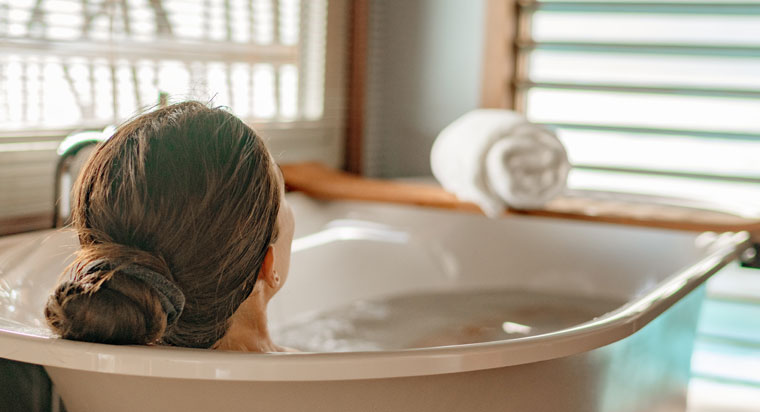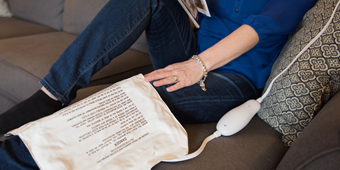Waking Up At Night? Try These 5 Tips

Answer a few questions and we'll provide you with a list of primary care providers that best fit your needs.
Awaking from sleep once or twice a night is common for many people. So long as you can return to sleep quickly, you’ll still get a good night’s rest.
But if you find yourself having difficulty getting back to sleep or you are waking four to six times a night, you may want to talk with your health care provider.
You could have something called middle insomnia, in which you awaken around 1 to 4 a.m. each night and have trouble falling asleep again. Another term, sleep maintenance insomnia, refers to waking up several times a night and having trouble returning to sleep.
Possible reasons for waking up during your sleep cycle include:
- Being stressed or anxious about something
- Medical conditions such as narcolepsy (excessive daytime sleepiness), restless leg syndrome, or sleep apnea
- Your digestive system disturbing your sleep with indigestion or feelings of being too hungry or too full
- Alcohol and caffeine, which can impact your deepest sleep, especially if you consume either of these substances too close to bedtime
- External stimuli, such as too much light in your bedroom, a glowing alarm clock or phone, and sudden noises such as a siren, a snoring partner, or loud neighbors
- Being too hot or cold. To stay asleep, your body needs to maintain a temperature about a degree below the normal 98.6 degrees Fahrenheit.
- A need to urinate at night, due to drinking fluids before bedtime, having an enlarged prostate, or a sensitive bladder. This isn’t uncommon, especially as you age. Sometimes getting up to use the bathroom can make returning to sleep difficult.
- Changes in hormones from menopause or other causes
- Fluctuating blood glucose levels from diabetes
If you find yourself having difficulty getting back to sleep or you are waking four to six times a night, you may want to talk with your health care provider.
5 Tips For Resting More Peacefully
Here are suggestions you can follow to get to sleep and stay asleep longer:
- Calm your mind and slow down racing thoughts or worries with meditation or deep breathing exercises. As you are trying to get to sleep or get back to sleep, inhale into your belly for a count of three, hold your breath briefly, and then exhale slowly. Play a free guided meditation on YouTube or your smartphone. Try visualizing a peaceful place and stay with the feeling of tranquility it brings. Also try tensing and relaxing each muscle in your body. You may be asleep before you finish.
- Create a relaxing setting by turning off the television, phones, and lights. Make your room dark and silent. Set your thermostat a little cooler than is comfortable in daytime hours to accommodate your body’s slight drop in temperature during sleep.
- Follow a bedtime routine, going to bed around the same time each night. Before bedtime, you may want to unwind with a warm bath or shower, a cup of herbal tea, a book, some gentle stretches, or meditation.
- Avoid caffeine and alcohol in the hours leading up to bedtime. Keep in mind that caffeine stays in your system for up to six hours, and alcohol consumed within two hours of sleep affects your deepest sleep, which is REM (rapid eye movement) sleep.
- Get out of bed if you absolutely can’t get back to sleep after 20 minutes or so. Do something quiet and relaxing, with the lights dimmed, until you feel sleepy. Don’t rely on an electronic device, because the bright light is more likely to stimulate than relax your brain.
If these suggestions don’t work and you continue to have problems with waking in the night and struggling to go back to sleep, see your doctor to explore additional ideas and look for underlying medical conditions.
Answer a few questions and we'll provide you with a list of primary care providers that best fit your needs.
Sources: National Sleep Foundation; The Sleep Advisor; Healthwise, Sleep and Your Body Clock, 5/28/2019




